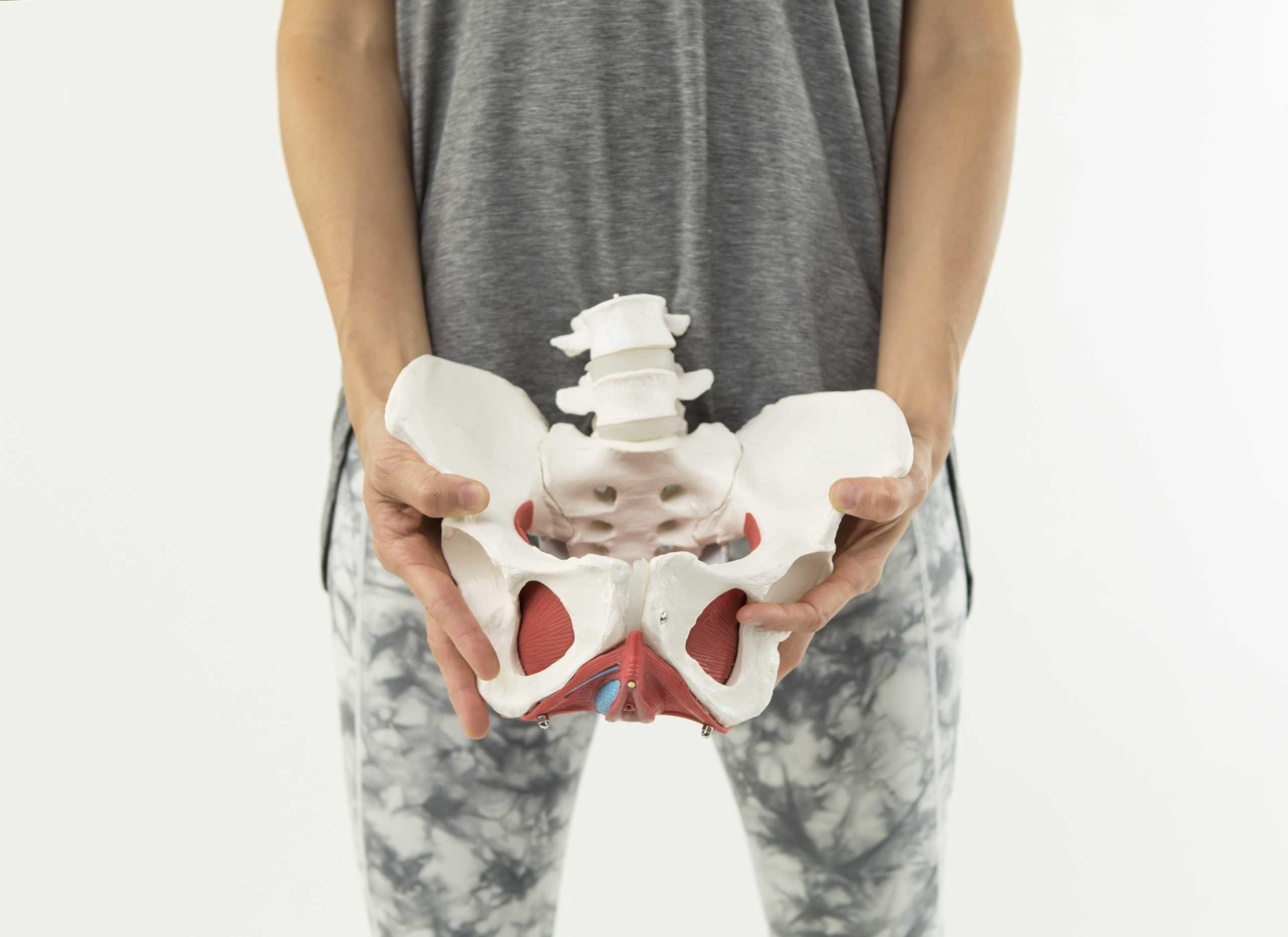Disclosure :: This post is sponsored by NOLA Pelvic Health.
6 Reasons You May Need Pelvic Floor Physical Therapy
 Is sex painful?
Is sex painful?
Are poops problematic?
Do you leak urine when you cough or sneeze?
Do you feel pressure or heaviness in your vagina?
Does your back or hip hurt even though you gave birth years ago?
If your answer is “yes” to any of these, your pelvic floor may be the problem.
So, what exactly is the pelvic floor?
The pelvic floor is a basket of muscles located at the bottom of your pelvis. The muscles support your internal organs and play a role in bladder and bowel control, sexual function, and childbirth. Changes in these muscles often occur during pregnancy, childbirth, with aging or hormonal changes and can lead to painful or embarrassing symptoms.
Enter: pelvic floor physical therapy.
 Pelvic floor physical therapy treats the muscles and tissues in the pelvic region of the body, which when not working optimally, can lead to urinary leakage, pooping problems, pain or pelvic floor and core weakness.
Pelvic floor physical therapy treats the muscles and tissues in the pelvic region of the body, which when not working optimally, can lead to urinary leakage, pooping problems, pain or pelvic floor and core weakness.
You can start pelvic floor physical therapy as early as 4-6 weeks after giving birth, but even if pelvic floor issues arise days, months, or years after childbirth, pelvic floor therapy can help.
Signs you may want to see a pelvic floor physical therapist:
- Urinary Incontinence
No amount if urinary leakage is normal. If you leak urine with a cough or sneeze, wear panty liners just in case, or avoid jumping in the bounce house for fear of wetting your pants, then your pelvic floor isn’t performing the way you need it to. An evaluation from a pelvic floor PT can determine if your pelvic floor is too weak or too tense and provide exercises to start getting you dry.
- Constipation
If you notice your daily poops are fewer and far between, your pelvic floor may be a piece of the puzzle. Strain during bowel movements, feeling like you are never fully empty, struggling with persistent hemorrhoids, or bleeding during bowel movements are often signs of pelvic floor tension. Pelvic physical therapists can teach you the proper way to poop (yes, there is a proper way) and help you relax your muscles to have pain free and complete poops.
- Prolapse
If you feel fullness or heaviness in your vagina or like something is falling out, you may have pelvic organ prolapse. During pregnancy, birth or with aging, your pelvic floor muscles get lengthened and don’t support your internal organs as well. Prolonged standing, heavy lifting, straining during bowel movements or carrying your kiddo can put pressure on your pelvic floor and lead to prolapse. Pelvic floor therapy can help strengthen weakened muscles and teach you strategies to improve and prevent prolapse.
- Pain with sex
Pain with sex can feel like burning, bruisy, a tearing sensation or feel like something is hitting a wall. Vaginal dryness, pelvic muscle spasm, healing tissue from a vaginal tear or episiotomy, or cesarean scar restriction can all contribute to pain with sex. Pelvic floor therapy can relieve tense muscles and scar tissue and desensitize your pelvic floor to help sex be pleasurable and pain-free.
- Diastasis Recti
Diastasis recti is a separation of your abdominal muscles that commonly occurs during pregnancy and persists after giving birth. Not only can this indicate weak core muscles, but it can contribute to low back pain and pelvic floor weakness and dysfunction. Pelvic health therapy can help strengthen weakened core muscles.
- Cesarean scar restriction
If jeans feel sensitive, wearing your baby is uncomfortable or you have a shelf over your cesarean scar, tissue restriction from your cesarean scar can be the culprit. When scar tissue heals, it may not move as freely as prior to surgery. Working with a pelvic floor therapist can help mobilize this team and relieve bladder problems, low back or groin pain, constipation or painful sex which often accompany cesarean scar restriction.
Okay, so where do I start?
Whether you are 6 weeks or 6 years postpartum, it is never too late for pelvic floor therapy!
Pelvic floor physical therapists, like myself, can help you prepare for birth, recover postpartum, strengthen weakened muscles or release tension down there. If you’re experiencing any of the symptoms above, your pelvic floor isn’t performing the way you would like, or you are looking to prevent issues down the line, you are not alone, and I am here to help.
Schedule an appointment at NOLA Pelvic Health or contact us at [email protected] or call or text 504.814.3615 to learn more.
About the author
 Ashley Holstein is a doctor of physical therapy and pelvic floor therapist at NOLA Pelvic Health. She specializes in pregnancy care, childbirth preparation, postpartum recovery, trigger point dry needling and healing pelvic floor issues affecting women and moms at all life stages. In her free time, she enjoys reading, attending festivals, and spending time with her husband and two kids.
Ashley Holstein is a doctor of physical therapy and pelvic floor therapist at NOLA Pelvic Health. She specializes in pregnancy care, childbirth preparation, postpartum recovery, trigger point dry needling and healing pelvic floor issues affecting women and moms at all life stages. In her free time, she enjoys reading, attending festivals, and spending time with her husband and two kids.
















